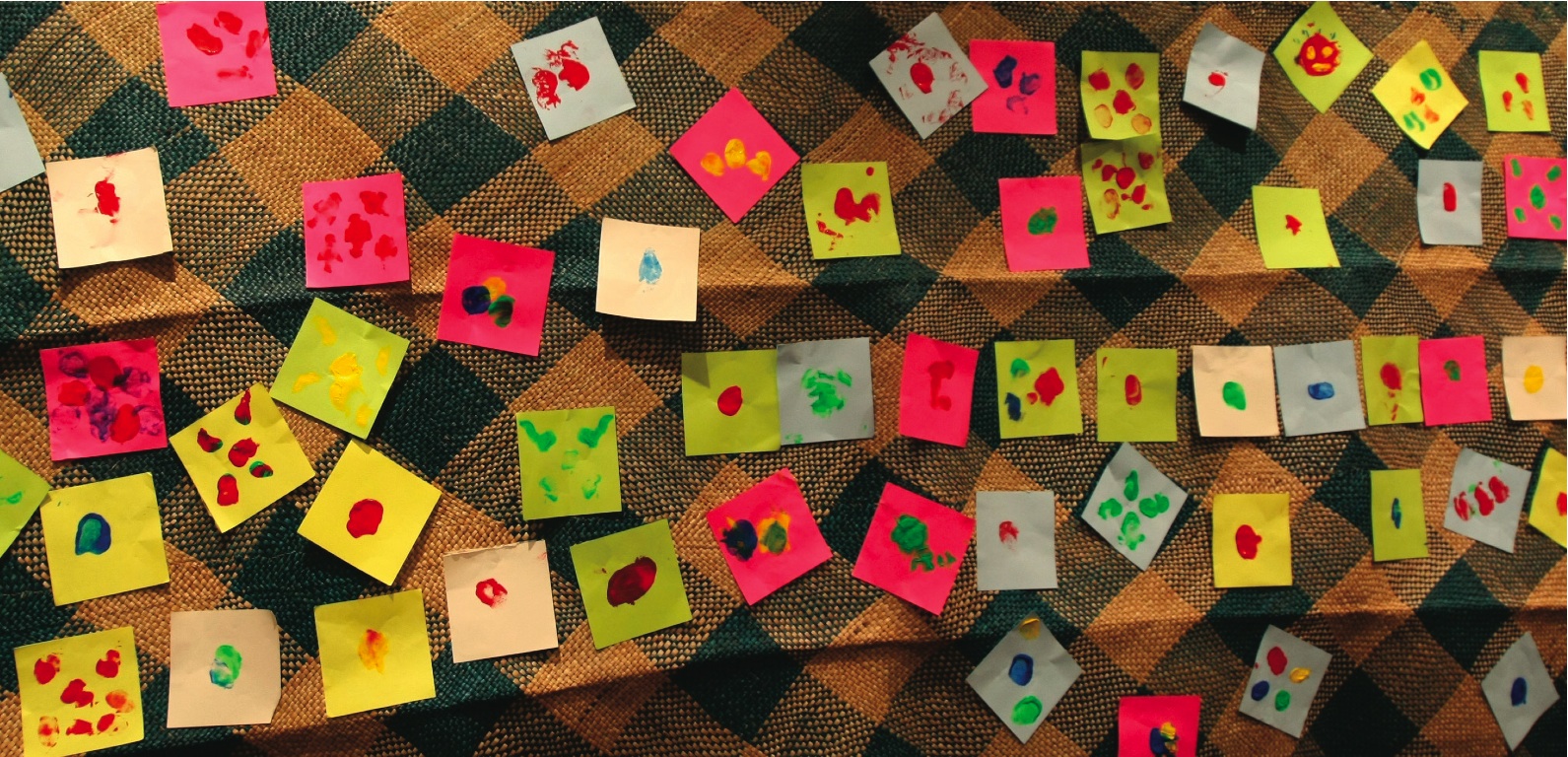ANSA-EAP organized Open Doors 2009, a regional stakeholders forum focused on procurement monitoring in order to better understand the broad application of social accountability tools and methodologies.
The Forum provided a platform for learning and community building among practitioners, students, and advocates of social accountability who are interested in applying these approaches to the procurement field.
It also brought together a wide range of stakeholders—civil society organizations (CSOs), governments, media and donors—that have worked on in the procurement field.
A number of social accountability experiences in procurement monitoring were selected as exemplars to showcase stakeholder practices, tactics, tools, and tales of citizen engagement with government.
ANSA-EAP together with the Procurement Watch Inc. (PWI) of the Philippines sought for stories from citizen groups in Indonesia, Cambodia, Mongolia, Papua New Guinea, Thailand, Philippines, South Korea, and Japan.
These procurement monitoring stories exemplified the impact of citizen group advocacy and initiatives on social accountability.
The stories were presented in a Social Accountability Gallery by the contributing institutions at Open Doors 2009 held in Hong Kong from 9 to 11 November 2009. Some of the featured case stories per country were:
From Cambodia:
Scout Monitoring on School Facility (SMSF) the Khmer Institute for National Development (KIND) experience. This project is aimed to promote the understanding and participation of Cambodian Scouts in school facility monitoring in Kandal Province and Phnom Penh city. The monitoring is undertaken in three schools in Kandal Province and three school in Phnom Penh city. The result of the monitoring will be presented to the potential decision makers in the Ministry of Education and Sports. KIND also plans to transfer this tool to other community by encourage and organize the youth group to monitor the public service provide by the commune/Sangkat level. KIND cooperated with National Association of Cambodian Scouts (NACS) and work closely with high ranking official of the Ministry of Education and Sports. We also coordinated our activities with the provincial Department of Education Youth and Sports and School in target area. Click here to read PDF
Local Administration and Reform Project (LAAR) the Pact Cambodia experience. Pact Cambodia’s Local Administration and Reform Project (LAAR) assists civil society effectively to demand accountability and transparency from elected councils/government at the local level. Working alongside local NGO partners, LAAR is engaged in a deliberate process in 356 communes to build mutual understanding, improve communication and increase information exchanged between citizen groups (Commune Mobilizing Committees) and their local government officials (Commune Councillors). LAAR helps citizens understand how to put good governance principles into action and helps commune councillors be more responsive to the needs of their communities. Click here to read PDF
From Indonesia:
Goods and Services Provisioning Assessment as an Effort of Education and Health Service Quality Improvement in Tangerang City, Indonesia the PATTIRO (Center of Information and Regional Studies) experience. PATTIRO carried out this program because of poor quality of goods and services provisioning, despite sufficient budget in APBD. On the other hand, civil society organizations in Indonesia seldom monitor goods and services provisioning. This project also became one of Indonesian NGO’s pilot projects to study how Indonesian government performs procurement of goods and services by conducting research on its impacts in education and health sectors at city level. PATTIRO encouraged community and civil society organization participation by coalition pressure and combination of procurement monitoring and expenditure tracking. The project involved monitoring procurement systems and processes of the Education and Health Service of the Indonesian government. The community was tapped in research and coalition building for procurement monitoring. Click here to read PDF
Integrity Pact by Transparency International-Indonesia. The Intergrity Pact is an agreeement to bring fairness into business transactions in the bidding of government projects and to ensure transparent and accountable bidding. This makes government officials pledge that they will not take bribes. Private companies also pledge not to give bribes. Transparency International (TI)-Indonesia approached local governments and worked out the details of an Integrity Pact under Presidential Decreee 80/2003. They introduced a complete Integrity Pact package into the procurement system in 22 districts and municipalities. Click here to read PDF
From Japan:
Japan Citizen’s Ombudsman Association the Pacific Asia Resource Center experience. In Japan, audit committee systems in the local government are composed of half of the auditors chosen by local government officials or assembly men while the rest are former government employees. The Japan Citizens’ Ombudsman Association sees this set up as dysfuntional and lobbied for citizen participation in the audit system. An amendment of the law that created the audit committee system was passed in 1999 which added an external audit system composed of non-government lawyers, accountants, and tax accountants. It is safe to say that the Japan Citizen’s Ombudsman Association opened citizen participation through monitoring and involvement in the audit mechanisms in place. Click here to read PDF
From Mongolia:
Partnership of Public, Private Sector and Civil Society Program the Social Research Institute, National University of Mongolia experience. The main goal of the program is to build capacity among local NGOs in monitoring small sized local public tendering. In 2006, the Government of Mongolia started implementation of a School Tea Break program, which has an average annual budget of MNT 800 million (US$ 550,000) per province. This project strengthened the roles that government, civil society organizations and businesses play in local development. civil society organizations assessed the problem and increased public awareness. Parents, teachers and school doctors started to monitor daily implementation of the program. civil society organizations then brought relevant government agencies, ultimately responsible for improving policies and practices, into the dialogue. Businesses were informed about the new opportunity to expand their market and were trained to participate in a competitive bidding process. Click here to read PDF
From the Philippines:
The Medicine Monitoring Project the National Citizen’s Movement for Free Elections (Namfrel) experience. The NAMFREL-Department of Health (DoH) “Medicine Monitoring Project” started in 2004 through a Memorandum of Agreement (MoA) between NAMFREL and DoH. NAMFREL’s network of nation-wide volunteers monitor the implementation of GPRA 9184 (Procurement Law) in government hospitals and regional health office. Initially involved in ensuring citizens representation only in the public bidding of drugs and medicines, the project later on expanded (in 2006) in procurement of hospital supplies, equipment, and services, and in bidding of infrastructure projects. This project enabled the DOH not only to satisfy the requirements of GPRA 9184 but it also served as an administrative mechanism of the Central Office to monitor the compliance by its 70 retained hospitals and 16 regional health office of the department’s internal management systems through NAMFREL.
Building Bridges Toward Good Governance with Local Government Units (LGUs) and Other Government Agencies: The Continuing Story of Principled Engagement, Cooperation and Coordination the Citizens Network for Good Governance (CNGG)-Negros experience. Organized as a corruption prevention unit, CNGG’s approach is to build a partnership of principled cooperation with the government agency. CNGG devised a reporting tool tht tracked problem spots and led to savings of Php 15 million (about US$ 320,000) in eight government agencies over a period of less than a year. Their story discussed the diagnostic reports of the public biddings they attended and pointed out violations or erroneous implementation of the law so as to prevent committing the same in the future.
Textbook Count the Government Watch (G-Watch) experience. The end goal of G-Watch is to strengthen the bureaucracy to achieve effective and ethical governance. This is done by instituting transparency and accountability mechanisms in the systems, programs and service-delivery of the government through collaboration between citizens and government agencies, between private and public, at the national down to the local level. This project aimed to bring the right quantity of quality textbooks to pubic schools at the right time. The focus of this project is the delivery of basic services, but the approach is slowly being applied to key organizational processes of government agencies that protect and advance human rights like the Commission on Elections and Commission on Human Rights.
Bantay Eskwela (School Monitoring) the Bantay Eskwela Davao Chapter experience. In the second week of April 2009, Bantay Eskwela started this initiative as an anti-corruption effort. They focused on monitoring school equipment to check how the Department of Education (DepEd) use its money in procurement and how the Government implements approved projects. Bantay Eskwela encouraged community participation by joining seminars, orientations, biddings and other procurement activities. The government’s positive response is seen through the involvement of Bantay Eskwela members and volunteers in the above mentioned procurement activities.
From South Korea:
An Experience of the Defense Sector Procurement Monitoring the Defence Acquisition Program Administration (DAPA) experience. As in many countries, the defense sector is one of the most corruption-prone areas in Korea. There were many problems in Korean defense procurement systems, such as lack of transparency in decision- making, severe restrictions on disclosure of information, and deficiency of monitoring. The Committee for the Reform of Defense Acquisition System recommended the establishment of a new national agency for defense procurement and to concentrate all defense procurement to this institution. As a result, Defense Acquisition Program Administration (DAPA) was established on 1 January 2006 based on the DAPA Law, which was enacted in 2005. It declares publicly as its mission ‘to enhance twice transparency, fairness, efficiency and expertise’. Click here to read PDF

